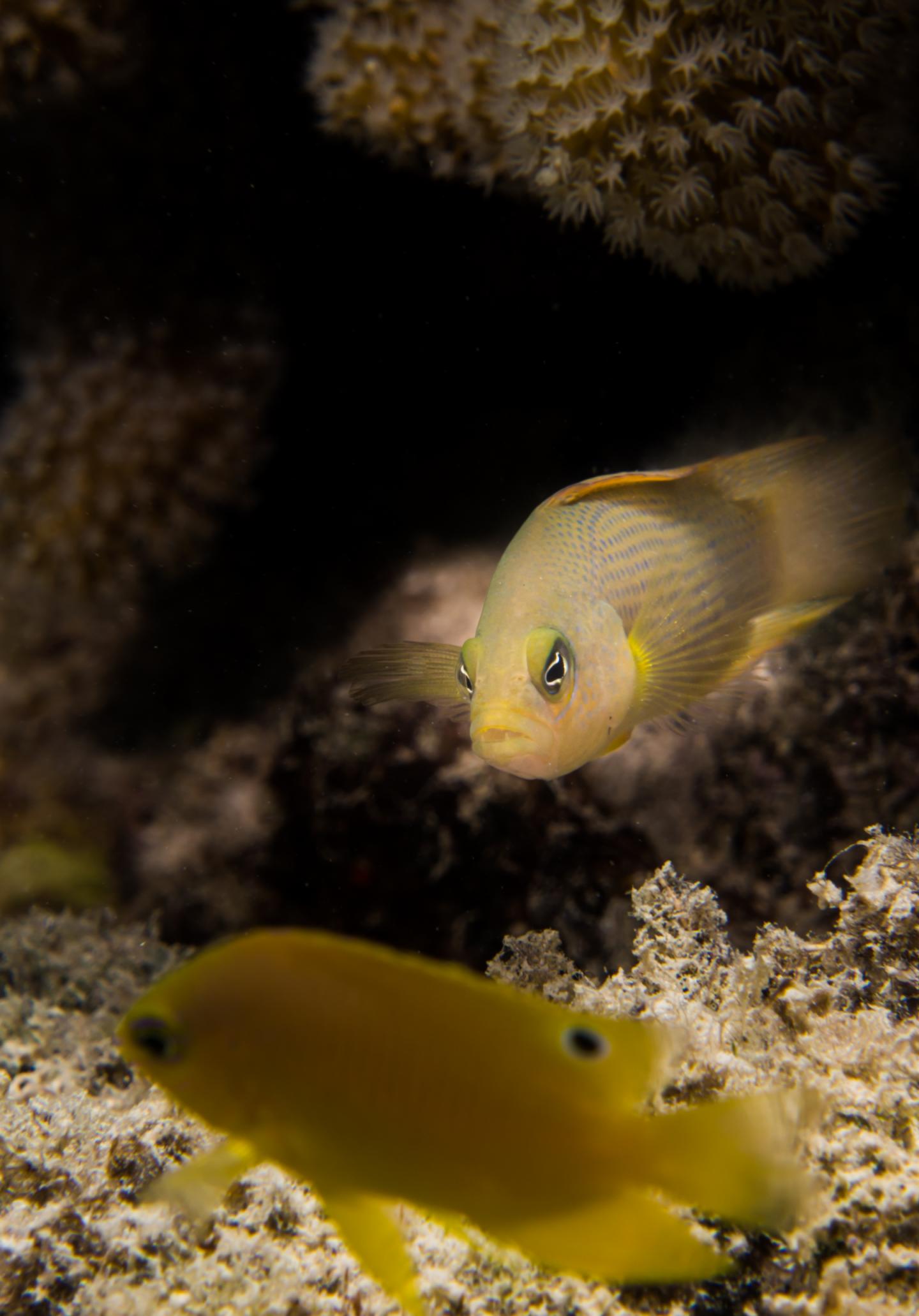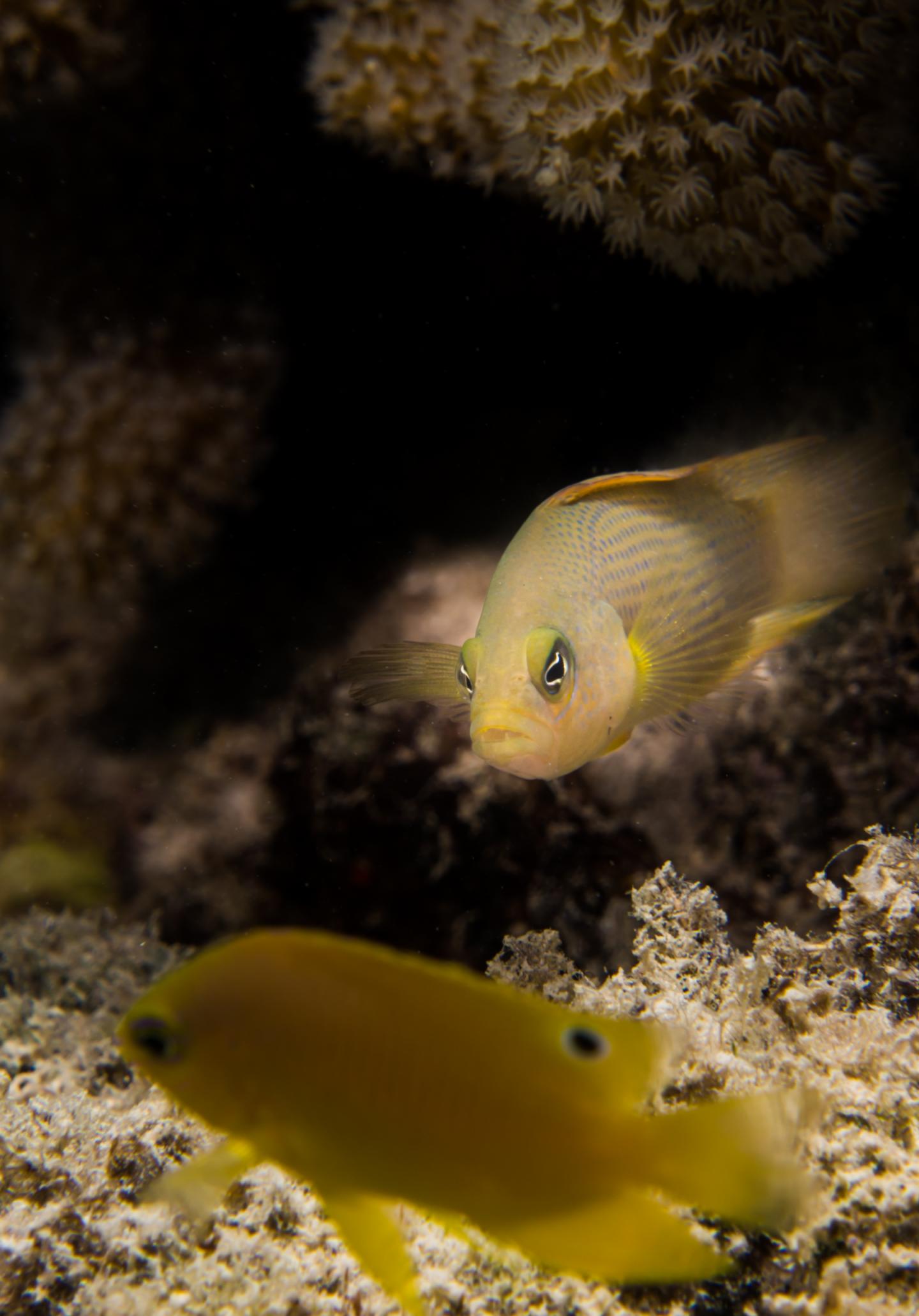
IMAGE: This image shows a predatory dottyback eyeing up a juvenile Ambon damselfish.
Credit: Christopher Mirbach
A pioneering new study shows the rate fish are captured by predators can double when boats are motoring nearby.
Professor Mark McCormick of the ARC Centre of Excellence for Coral Reef Studies at James Cook University was part of an international research team that found noise from passing motorboats increases stress levels in young coral reef fish and reduces their ability to flee from predators. As a consequence they are captured more easily and their survival chances are halved.
It's the first study to show that real-world noise can have a direct consequence on fish survival. "It shows that juvenile fish become distracted and stressed when exposed to motorboat noise and predators capitalise on their indecision", said Professor McCormick. The team hope the findings will inspire better environmental noise management in coastal areas.
"We found that when real boats were motoring near to young damselfish in open water, they became stressed and were six times less likely to startle to simulated predator attacks compared to fish tested without boats nearby," said Dr Stephen Simpson, of the University of Exeter who led the study, funded by the Natural Environment Research Council (NERC).
The team of scientists included Australian and Canadian researchers specialising in predator¬-prey interactions and bioacousticians from the University of Bristol.
They combined laboratory and field experiments, using playbacks and real boat noise, to test the impact of motorboat noise on survival of young Ambon damselfish during encounters with their natural predator the dusky dottyback.
"We found that when real boats were motoring near to young damselfish in open water, they became stressed and were six times less likely to startle to simulated predator attacks compared to fish tested without boats nearby," said Dr Simpson.
The team is optimistic about the possibilities for management of noise and its potential impact. "If you go to the Great Barrier Reef, there is a lot of noise from motorboats in some places. But unlike many pollutants we can more easily control noise. We can choose when and where we make it, and with new technologies, we can make less noise. For example, we could create marine quiet zones or buffer zones, and avoid known sensitive areas or times of year when juveniles are abundant," said Professor McCormick. Managing local environmental stressors such as noise is an essential first step in protecting the marine environment.
"You might argue that climate change is a bigger threat to reef life, but if we can reduce the effect of local noise pollution we build greater resilience in reef communities to looming threats such as global warming and ocean acidification," said collaborator Dr Mark Meekan, Australian Institute of Marine Science.
###
Media Contact
Mark McCormick
[email protected]
61-040-937-1015
@CoralCoE
http://www.coralcoe.org.au/





